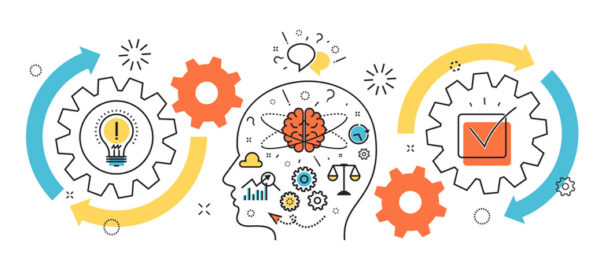Creating a website used to be a big, troublesome task only a decade ago, but now, things have changed; not to mention it has become much easier. With web development platforms such as WordPress, even those who don’t have a single clue about coding can take matters into their own hands and create websites single-handedly. However, there are certain instances when using such a platform just wouldn’t work for custom web development.
At times like these, entrepreneurs need to make a few tough decisions and dive deeper into the entire web development process. One of these tough decisions might be choosing between pre-made templates for websites or opting for custom web development. Both have their pros and cons, and the solution is mainly subjective. However, sometimes you need custom development as the specific benefits it has may prove to be just the thing that will provide you with a competitive edge in the digital world.
Custom web development
Web development is the process of building, creating and maintaining websites. It’s what keeps the site going, i.e. allows it to load correctly on every browser and system. It is also the engine that processes e-commerce transactions, collects leads and downloads digital documents. It’s the engine of your site and it‘s digital presence.
It’s important to know that web development can either break or make your site’s popularity and profitability. It’s not all about the looks of the site, but features, speed, compatibility are crucial factors that will play an important role in your website’s success. This is where trained, professional web developers come into play.
Custom web development enables you to create a unique website and gain that competitive edge over others in your industry. Going with pre-made templates can also do the trick, however, if you are looking for something that will stand out, custom might be the route you should take.
Benefits of custom web development
Visual effectiveness and user experince
Aesthetics play an important role in driving traffic and boosting sales. In custom web development, you have more options to make your website visually effective and appealing to users. This results in higher user engagement and ensures efficient communication with visitors.
Moreover, custom-built websites are user-friendly. The developers anticipate user expectations and tailor the development process accordingly. For a successful online presence, it is important that you develop the website around your business needs and target audience. This is why custom-built websites provide a better and enjoyable user experience.
Serves the long-term purpose
People in the industry know that custom web platforms yield more ROI when compared to pre-made designs, even though they are more costly. Custom websites are built with the customer, their business objectives and audience in mind. This means that every move the developers make serves your business to increase conversion rates and generating more profit.
Personalization and localization
Nobody likes to interact with robots. Internet users today are far more demanding and want a website to understand their needs and offer them personalized solutions. This makes them feel special, and a personalized experience tends users to stay longer on your website and visit it on a regular basis.
In custom web development you have the advantage to customize the web pages and offer visitors a personalized experience based on his location and demographics. This is why a custom-built are more trusted and live longer as compared to premade templates.
SEO and visibility
One of the most important reasons why digital marketers prefer custom-built websites is that they help the website to achieve better search engine rankings. There is intense competition for visibility, and a fact that is often overlooked is that web development and SEO go hand in hand. Search engines prefer custom-built website because it is personalized and user-friendly. Another important factor for better ranking is mobile-friendliness. In custom web development you have more opportunities to make your website mobile optimized and provide a seamless user experience to visitors on the mobile phone.
Flexibility to make amendments
You know your business will change or grow with time, thus your site also needs to progress with time. When you use a free template, you will bring your website to a standstill. Your features and functionality are limited. However, if you go for custom website development, you get complete flexibility to customize your site as and when you want. You can update your website over time and ensure that your developer will keep it updated with the trends and advancements of the internet. This consistency will enhance your ranking and credibility.
Better performance due to optimization
When you get a standard website from an online site building platform, it usually has a set of features that you cannot get rid of. Unused and superfluous functionality creates an additional load on your website’s performance.
Custom web development solves this problem by giving you exactly what need, nothing less and nothing more. For example, one custom Drupal module can replace a few free ones, because it is created specifically for you. This boosts performance, prevents conflicts, eliminates complexity, and provides for the smooth functioning of the website. We should note that in custom web development there are also more opportunities for its improvement.
Complete support
So you developed a template-based website and the server just crashed or a plugin isn’t working as effectively; what do you do next? With custom web designs, this hassle is completely eliminated. You will have a go-to person, i.e. your developer to reach in case anything goes amiss with the website.
As these reasons make custom web design more reliable and efficient than DIY templates, you should definitely consider hiring a professional team for your business. At NYX Ditech, we are driven to provide our clients with turnkey web design and development solutions. Schedule an appointment with us for a detailed discussion about your website, business, and goals.
Read more about services we offer in Web Development here





